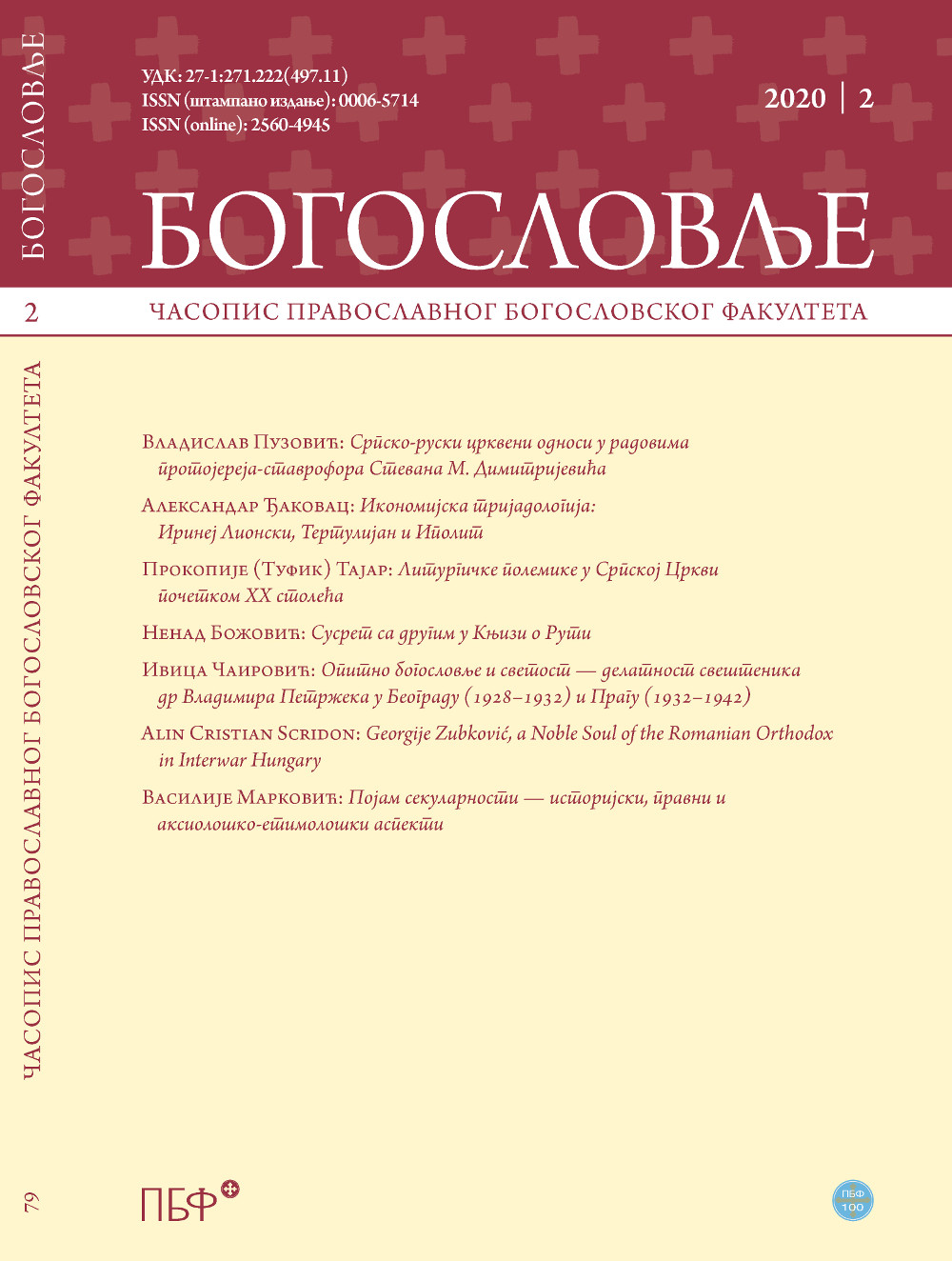Пojaм секуларности — историјски, правни и аксиолошко-етимолошки аспекти
The Concept of Secularity — Historical, Legal and Axiological-Etymological Aspects
Author(s): Vasilije MarkovićSubject(s): Politics / Political Sciences, Anthropology, Social Sciences, Political Theory, Communication studies, Sociology
Published by: Православни богословски факултет Универзитета у Београду
Keywords: secularity: laicite: the ECHR: relationship between the church and the state: the cooperative model: Constitution of the Republic of Serbia
Summary/Abstract: Discussions about the meaning of the term secularity are of the key importance for understanding the relationship between religion and state authorities, on the one hand, and an individual’s freedom of religion, on the other. What can post-secularism bring to civil society and pluralism, and what is the relationship between the universalist civic and the particular cultural (and religious) pattern within it? Does secularism mean the inevitable and hermetic separation between the state and the church, society and religion or do other legal modalities exist within that same secularity and which are they? Where is in that plurality of relations of the “post-secular” Serbian society at the moment and where should be? In addition to presenting all the differences of European modalities, the author points out that it is necessary to further insist on the nuances of the concept of secularity in our society, since, as currently perceived by the some parts of public, it is quite one-sided and incompatible with European cultural and pluralistic achievements as well as with what is written in the Constitution of the Republic of Serbia and the Law on Churches and Religious Communities.
Journal: БОГОСЛОВЉЕ
- Issue Year: 79/2020
- Issue No: 2
- Page Range: 103-126
- Page Count: 23
- Language: Serbian

